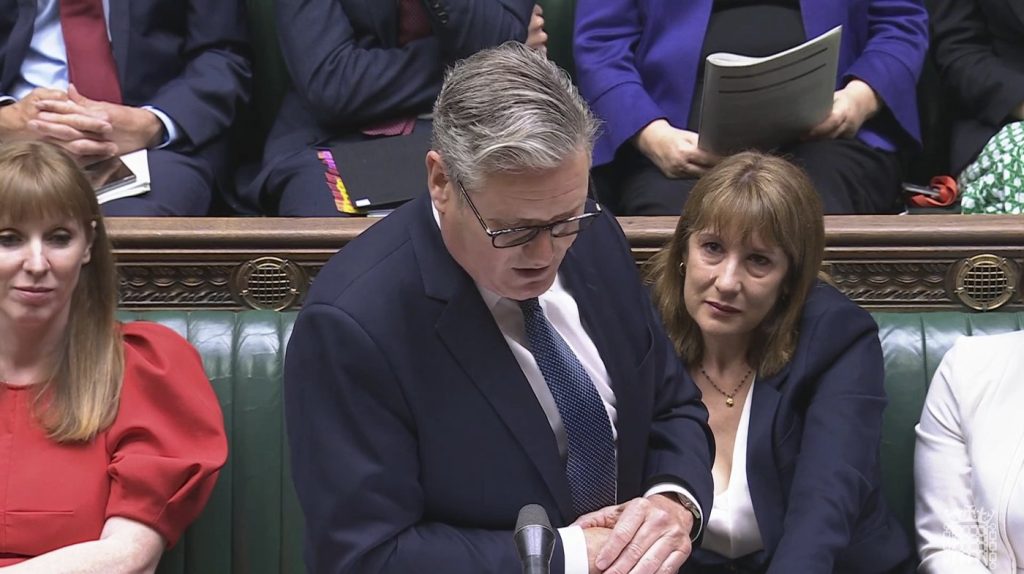LONDON (AP) — British Prime Minister Keir Starmer’s office confirmed on Wednesday that Treasury chief Rachel Reeves remains secure in her position despite facing significant challenges following a series of government U-turns that have adversely impacted her revenue-raising plans. The situation has raised concerns regarding Reeves’ future, particularly after a visibly emotional moment in the House of Commons, where she appeared to be in tears, showcasing the strain of recent political reversals.
The backdrop to this turmoil includes an embarrassing reversal concerning plans aimed at cutting welfare spending. This development prompted considerable speculation about Reeves’ job security, particularly since she looked exhausted and distressed while seated behind Starmer during the weekly Prime Minister’s Questions session. In light of these challenges, the Treasury has stated that Reeves is addressing a “personal matter,” although no further details were provided.
Initially, Starmer hesitated to assure lawmakers, including opposition leader Kemi Badenoch, that Reeves would retain her role heading into the next election, which is likely to take place in 2029. However, his press secretary later clarified that Reeves "is going nowhere" and has the full backing of the Prime Minister, effectively quelling speculation about any imminent changes within the Treasury.
The government faced substantial internal dissent, as it was forced to dilute its original plans to curb welfare spending in order to resolve a rebellion from within Starmer’s own Labour Party. The legislation passed its first significant hurdle in the House of Commons but only after the government made concessions to appease Labour rebels, including softening and delaying cuts to welfare benefits for disabled individuals. Despite these adjustments, a noticeable 49 Labour lawmakers still voted against the bill, indicating deep divisions within the party.
This episode represents a significant blow to Starmer’s leadership authority as he approaches the one-year anniversary of his election, which falls on Friday. The government is grappling with a sluggish economy and disappointing approval ratings, which compound the difficulties surrounding these policy decisions. Furthermore, the recent changes leave the Treasury at a disadvantage, as it falls short of the funds necessary for investing in public services, increasing the likelihood of needing to impose tax increases despite previous commitments not to raise key levies such as income tax and sales tax.
Initially, the government had projected that its welfare reforms would yield savings of around £5 billion ($7 billion) annually. However, with the changes implemented, it remains uncertain whether any substantial savings will materialize. This marks another instance of policy reversal for the government, particularly following a previous decision in May to abandon plans to terminate winter home heating subsidies for millions of retirees—an initiative that Reeves also intended to utilize as a revenue source.
This sequence of events highlights not only the volatility within Starmer’s administration but also raises questions about the sustainability of their fiscal policies moving forward. With rising discontent among party members and the public, the government faces significant challenges in restoring confidence, both internally and externally.











